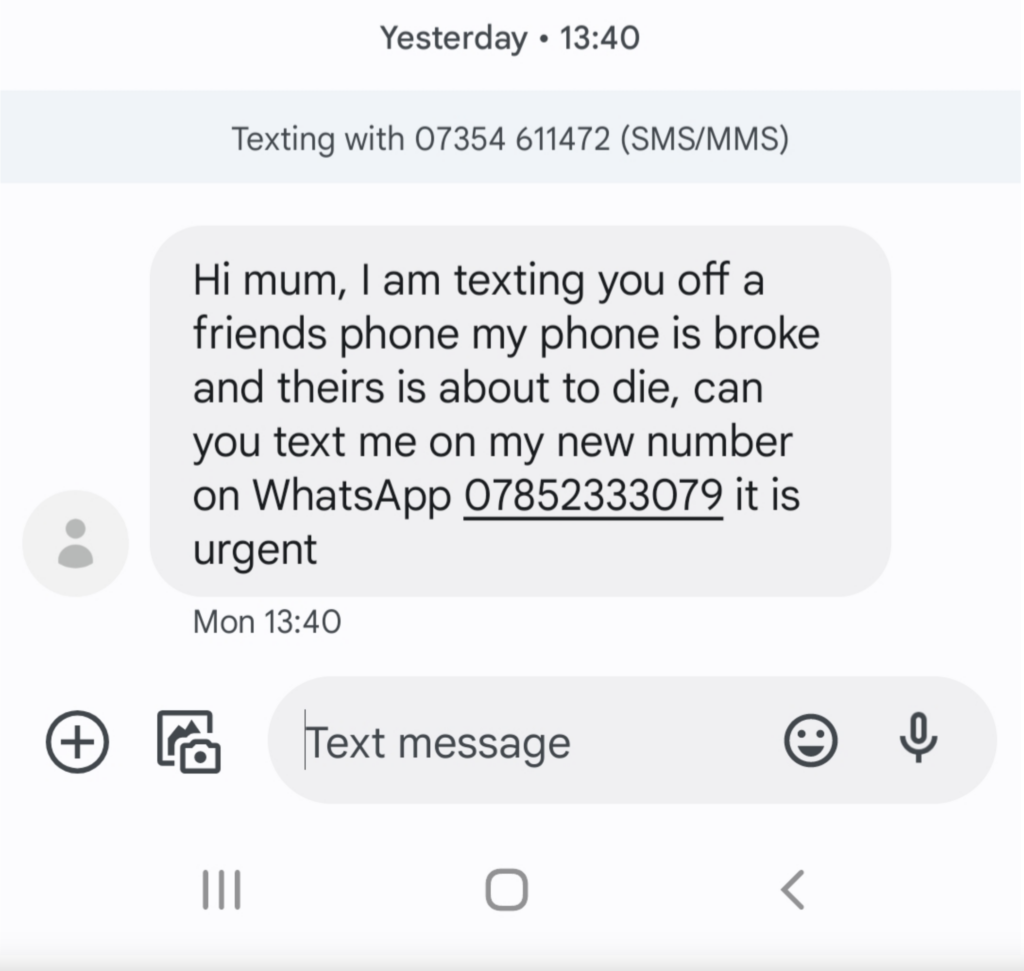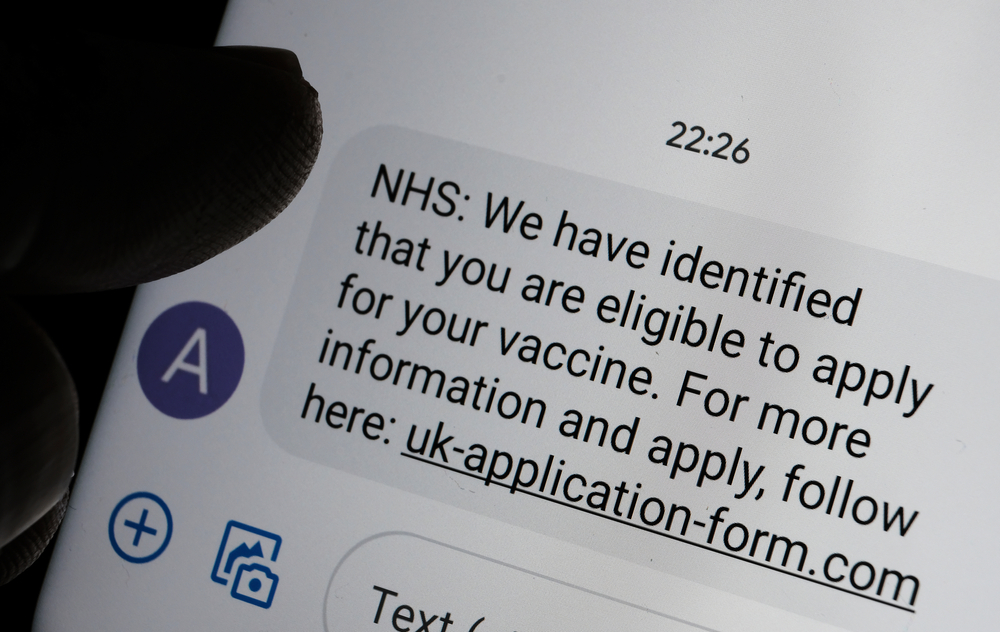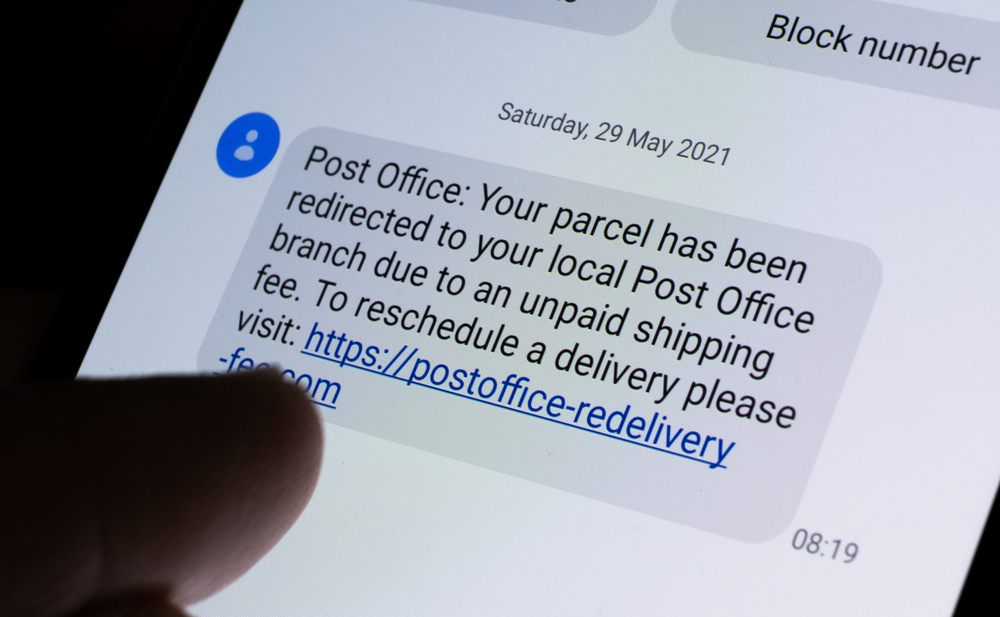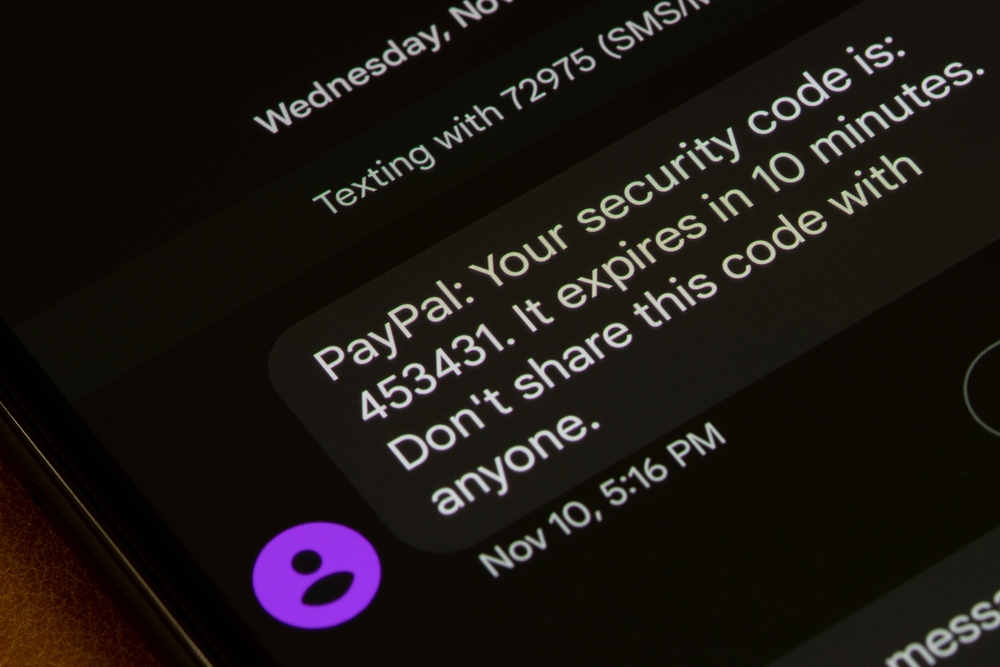Scammers are becoming more sophisticated, which means that their messages look ever more genuine. This is worrying enough when the recipient is an Adult, but when it’s a child, infinitely more so.
As ParentShield is built around the needs of children, there are many protections in place to protect the most vulnerable mobile phone users from dangerous scam text messages.
How can I stop scam text messages from going to my child’s phone?
Every ParentShield SIM-only plan comes with parent access to a secure online portal, where the parent or guardian can tailor their child’s mobile service around their needs.
Ultra-Secure mode is just one of many features, and this allows the phone to be placed into a ‘closed user group’ so only the ‘home numbers’ and any other numbers that you specifically add into the Safe List will be able to call or text your child’s phone ( or by it )
With any other mobile network, it would be a case of blocking the sender after they have been sent, which a) means they have already received it, and b) means it will be received again if they send using a different presentation number – this is absolutely no use when trying to protect a child from scam text messages.
What are the latest scam text messages?
A few of the latest scam text messages doing the rounds are as follows:
Broken phone scam
The ‘broken phone scam’ is a phishing text message aimed at ‘mums’. The personalisation of a message by using a recipient’s name increases it’s ability to suck a victim in exponentially. As they have no way of knowing who they are texting, generic names, such as ‘mum’ or ‘dad’ etc would land on far more than ‘Gary, Sarah etc. The way they use the love a mother has for their child, to extort them, is sickening.
“Hi mum, I am texting you off a friends phone my phone is broke and theirs is about to die, can you text me on my new number on WhatsApp 07852333079”
They work on the hope that the mother they happen to land on panics and follows the instructions, only to be told that money needs to be transferred.

NHS Vaccine scam
The ‘NHS vaccine scam’ is a phishing text message working on the basis of an official looking instruction to go off onto a form and fill in personal and financial information.
“NHS: We have identified that you are eligible to apply for your vaccine. For more information and apply, follow here: uk-application-form.com”
According to the NHS website “Dr Nicola Jones, local GP and GP lead for the roll-out of the vaccine in south west London, said: “The vaccine is a vital part in our defence against Covid-19 and we know people are excited about getting their jab, but sadly it also means being aware that opportunistic scammers and fraudsters will be looking to take advantage of the roll-out”

Post Office scam
The ‘Post office scam’ is a phishing text message working on the basis of a timely landing where someone is expecting, or recently posted a parcel. Obviously peak time, such as Christmas, there are a rise in this style of scam text message as parcel delivery is at its peak
“Post Office: Your parcel has been redirected to your local Post Office branch due to an unpaid shipping fee. To reschedule a delivery please visit: postoffice-redelivery-fee.com”
The Royal Mail have issued some guidance around this style of scam text message on their website

PayPal scam
The PayPal scam works on the basis of sending out a scam text messages that implies a payment has been made. Follow-up text messages are then sent from the scammers to encourage the recipient to make contact to dispute the (non-existent) payment. Usually via a fake website that then captures the victims personal account details, giving the scammers access to the victims account, personal and financial details.
“PayPal: Your security code is: 453431. It’s expires in 10 minutes. Don’t share this code with anyone.” then various follow-up messages proceed
There are also multiple variations of this, such as account and payment issues.
PayPal have issued some guidance around PayPal scammers on their website

Reporting scam text messages
If you have received a text message and are concerned that it may be a scam, The National Cyber Security Centre have provided some advice around how to recognise it, and how to report it, on their website.
Will ParentShield protect my child from scam text messages and calls?
Yes. There are many features built-in that will empower you with the ability to make restrictions to your child’s mobile service and monitor activity to properly protect them.
